
Environment
On this page you can follow how we discard material and residues responsibly, and respecting the environment, not only in order to follow the legislation, but also due to our commitment to the well-being of people, both within and outside the railway network.
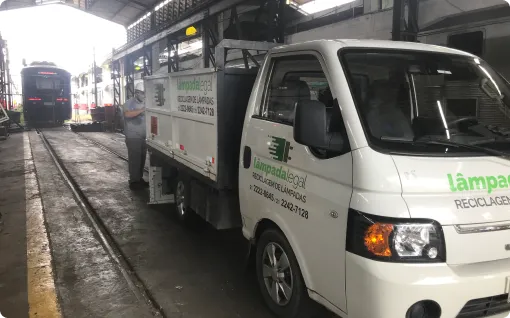
Disposal of light bulbs
When the fluorescent light bulbs/strips that are used at 104 stations need to be thrown away, they are collected, and transported to a specialised, licensed company, that separates the glass from the metal parts of mercury bulbs within the lamps. In this way, the aluminium base and tin pins are recycled. Even the mercury is reused, after undergoing special treatment.
Caption: In the São Diogo workshop, a truck and employee of a company subcontracted to recycle fluorescent lamps from the stations.
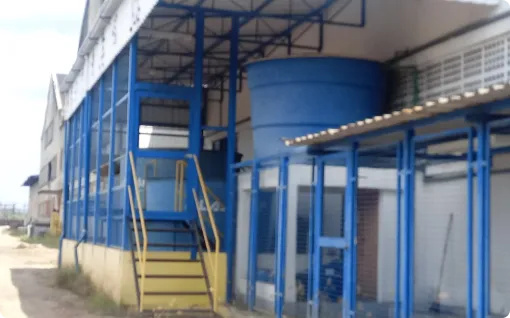
Re-use of water
The water re-used after the washing of the trains and parts is one of the most important and sustainable pillars of the company, which is only made possible with the two Industrial Wastewater Treatment Stations (IWTS), located at the Deodoro and San Diogo workshops. Only in 2021, over 2,000m3 of effluent was treated at the two stations, allowing for the re-use of 1,150m3 of water.
Caption: Industrial Waste Water Treatment Stations (IWWTS), at the Deodoro Workshop.
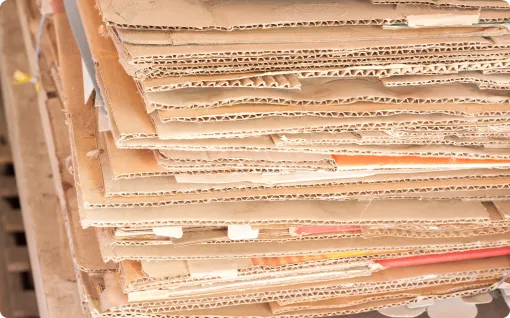
Re-use of cardboard
The waste cardboard coming from packaging of parts are donated to the SUIPA (International Society for the Protection of Animals) who recycles it.
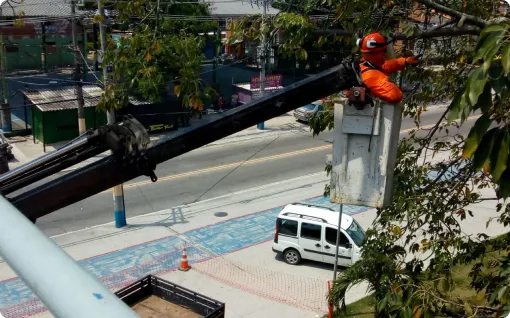
Pruning and Trimming
All pruning and trimming of trees and vegetation is carried out by a licensed and specialized company and trees are only cut back when it there is a risk of them falling down or when there is operational risk, and only after the environmental agencies responsible have emitted the proper authorization, whether this be municipal or state. Whenever necessary, compensatory measures are taken.
Caption: Pruning of a tree close to the Edson Passos Station, undertaken, following the current legislation and safety measures by a subcontracted company.
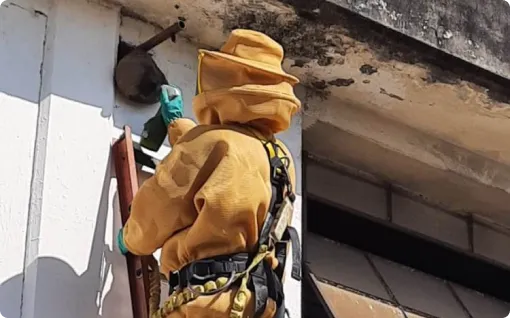
Removal of bees and hornets
The action of removing beehives and hornets’ and wasps’ nests is undertaken by a specialized apiarist, who removes them and transports them in boxes to a licensed apiary. This care helps to preserve these insects, the bees in particular.
Caption: Removal of the nests and hives of bees at the Deodoro Workshop, which is undertaken by a licensed apiarist, and hired for precisely this kind of service.
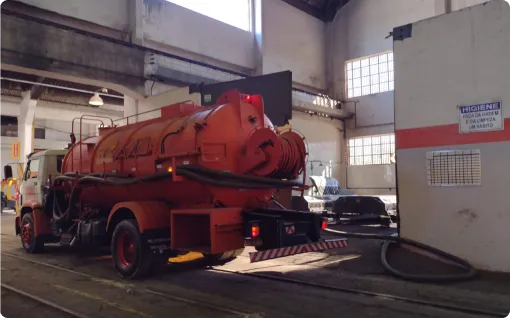
Management of solid and liquid waste
The management of solid and liquid waste follows the current classification and legislation.
They are separated and stored by our staff members and collected, conditioned, transported and removed by specialized and licensed companies, specially hired for this purpose, depending on the type of residue and waste and qualification of the company. Whenever possible the company always aims to recycle and re-use the treated waste. When this is not possible, it is removed to the local licensed garbage dump.
Caption: At the Deadoro Maintenance Center, trucks from the company that is hired to collect and transport the waste, following current classification and legislation.